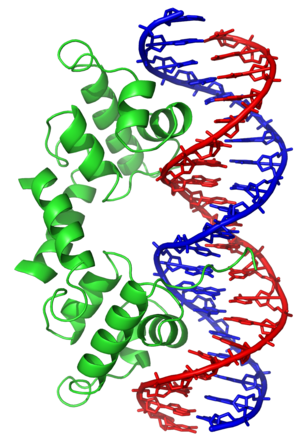 Image via Wikipedia
Image via Wikipedia
During the past fortnight we have witnessed the toppling of despotic regimes in Tunisia and the continued crisis in Egypt one of the world's oldest civilizations. In each situation the populace were forced to protest against increasing food prices which subsequently mushroomed into protests of other societal ills ranging from unemployment to basic human rights.
The UN's December bulletin announcing the highest increase in its Food Price Index peaking at 214.8 points fell on the deaf ears of Western donors distracted by annual Christmas and New Year celebrations. This apathy was also fueled by the preoccupation of Western governments with domestic policy austerity measures to the detriment of not only Foreign Policy budgets but also aid programs to Africa, India and Latin America. The UN's Food and Agriculture Organisation estimates that world cereal output will drop by 1.4 percent to 2.23 billion metric tons whilst demand will increase by 1.8 percent to 2.26 billion metric tons thereby creating the first cereal deficit since 2008.
The crisis in global food supply is exacerbated by environmental shocks ranging from floods in Pakistan, Brazil and Australia with drought in Argentina. Lets not forget the case of nuclear armed Pakistan is acute as that country is facing terrorism arising from Taliban insurgent incursions from neighboring Afghanistan and Taliban sympathizers from within its own populace not withstanding flood devastation, population displacement with its consequent food shortages. The Philippine's one of the world's biggest importers of rice has increased the retail price of rice in December by 8% despite a quarter of its population living on $1.25 a day according to World Bank estimates. To add to Philippine misery its cereal harvests have been decimated by a combination of drought and flooding.
A recent report by Foresight a UK government future's think tank argues for fundamental change to the existing approach by global society to food and the management of the food supply chain. The report unsurprising indicates that the world's food supply chain is unsustainable which has lead to a situation where a billion human beings are hungry, another billion are the "hidden hungry" and of course there are the billion of us who are never hungry. This global disparity has led to flash points which flare in regions within which there already existed social and political tensions concerning issues of disenfranchisement and distribution of wealth. Especially Tunisia which for the past 30 years has been viewed as a cheap holiday destination and in some cases second home locations for the global middle class or Egypt another popular tourist destination which until recently was hailed in the business press as the "new mecca" for the call center outsourcing industry in each case little regard was given to the social or economic conditions within which the faceless population survived, I think it unlikely that the other leg of the three legged sustainability stool - the environment - was even considered in the strategic planning of multinationals who have invested in Egypt within the past five years - its no wonder civil society has collapsed as there was investment but not sustainable development.
As international middle east "experts" and political strategists ponder on live television the consequences of western inaction from their Cairo hotel studio whilst being fed from the sandwich buffet from the hotel bar I wonder if Egyptian children in villages along the Nile can ask for more dinner .... did I hear correctly did they ask for more?
To learn more about quality, safety and environmental management visit www.sustainabilitycsr.com
The UN's December bulletin announcing the highest increase in its Food Price Index peaking at 214.8 points fell on the deaf ears of Western donors distracted by annual Christmas and New Year celebrations. This apathy was also fueled by the preoccupation of Western governments with domestic policy austerity measures to the detriment of not only Foreign Policy budgets but also aid programs to Africa, India and Latin America. The UN's Food and Agriculture Organisation estimates that world cereal output will drop by 1.4 percent to 2.23 billion metric tons whilst demand will increase by 1.8 percent to 2.26 billion metric tons thereby creating the first cereal deficit since 2008.
The crisis in global food supply is exacerbated by environmental shocks ranging from floods in Pakistan, Brazil and Australia with drought in Argentina. Lets not forget the case of nuclear armed Pakistan is acute as that country is facing terrorism arising from Taliban insurgent incursions from neighboring Afghanistan and Taliban sympathizers from within its own populace not withstanding flood devastation, population displacement with its consequent food shortages. The Philippine's one of the world's biggest importers of rice has increased the retail price of rice in December by 8% despite a quarter of its population living on $1.25 a day according to World Bank estimates. To add to Philippine misery its cereal harvests have been decimated by a combination of drought and flooding.
A recent report by Foresight a UK government future's think tank argues for fundamental change to the existing approach by global society to food and the management of the food supply chain. The report unsurprising indicates that the world's food supply chain is unsustainable which has lead to a situation where a billion human beings are hungry, another billion are the "hidden hungry" and of course there are the billion of us who are never hungry. This global disparity has led to flash points which flare in regions within which there already existed social and political tensions concerning issues of disenfranchisement and distribution of wealth. Especially Tunisia which for the past 30 years has been viewed as a cheap holiday destination and in some cases second home locations for the global middle class or Egypt another popular tourist destination which until recently was hailed in the business press as the "new mecca" for the call center outsourcing industry in each case little regard was given to the social or economic conditions within which the faceless population survived, I think it unlikely that the other leg of the three legged sustainability stool - the environment - was even considered in the strategic planning of multinationals who have invested in Egypt within the past five years - its no wonder civil society has collapsed as there was investment but not sustainable development.
As international middle east "experts" and political strategists ponder on live television the consequences of western inaction from their Cairo hotel studio whilst being fed from the sandwich buffet from the hotel bar I wonder if Egyptian children in villages along the Nile can ask for more dinner .... did I hear correctly did they ask for more?
To learn more about quality, safety and environmental management visit www.sustainabilitycsr.com



















